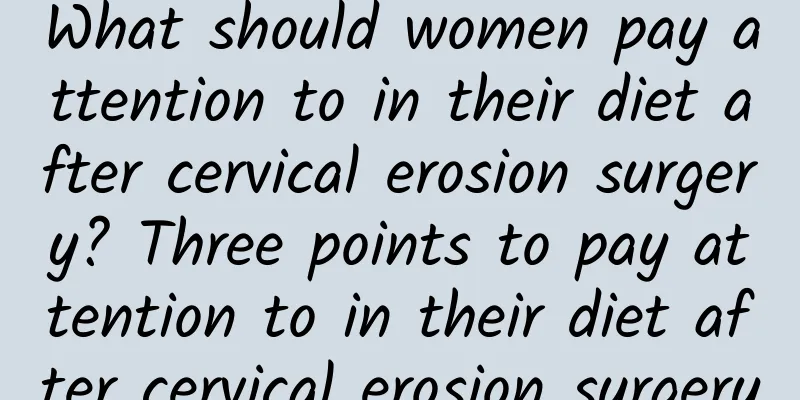How long does it take to recover after adenomyosis surgery?

|
It usually takes 6 to 8 weeks to resume normal activities after adenomyosis surgery, but the specific recovery time will vary depending on the type of surgery and individual physical differences. It is recommended that patients rest more after surgery and receive appropriate care and conditioning under the guidance of a doctor, which will help shorten recovery time and improve quality of life. 1. The impact of surgery type on recovery time The surgical methods for adenomyosis mainly include conservative surgery, interventional treatment and hysterectomy. The type of surgery chosen will directly affect the recovery time: Conservative surgery: Mainly for women who retain their uterus, it relieves symptoms by removing the lesions. The recovery time is about 6 to 8 weeks, and the wound heals quickly. Interventional treatment: such as uterine artery embolization, which is a minimally invasive technique with little intervention in the body, and patients can usually return to normal life within 1 to 2 weeks. Hysterectomy: If the condition is serious, the doctor recommends hysterectomy. The recovery time is longer, usually more than 8 weeks. At the same time, you need to pay attention to the impact of psychological stress and hormonal changes. 2. Personal factors affecting recovery Individual differences also affect recovery time, including age, physical fitness, and other health conditions: Younger patients who are in good health recover faster. If you have chronic diseases such as diabetes or high blood pressure, recovery time may be prolonged and you need to pay special attention to postoperative infection and other complications. 3. The role of postoperative care in recovery Scientific postoperative care is crucial to the recovery process, and the following aspects are particularly critical: Dietary care: Increase the intake of high-quality protein such as fish and eggs, eat more vegetables and fruits rich in vitamins, and avoid spicy and irritating foods. Appropriate exercise: After resting for 3 to 4 weeks, you can try light activities, such as walking, and avoid strenuous exercise. Avoid overexertion: Try to avoid lifting heavy objects or standing for long periods of time within 1 to 2 months after surgery. 4. The importance of psychological adjustment Especially for women who have undergone hysterectomy, emotional fluctuations may occur due to impaired fertility or hormonal changes. It is recommended that they maintain a good mental state and relieve stress through psychological counseling or family support. Recovery time after surgery varies from person to person, but scientific care and active adjustment can significantly speed up recovery. If you experience persistent pain, discomfort, or abnormal secretions after surgery, you should seek medical attention in time to avoid complications and ensure a smooth recovery. |
<<: Are there any dangers of uterine fibroids requiring removal?
>>: Can I have a baby after having my cervix removed?
Recommend
Why is cervical erosion difficult to cure for a long time? There are four reasons why cervical erosion in women cannot be cured.
It is difficult to completely cure gynecological ...
Overview of Hyperprolactinemia
Hyperprolactinemia, also known as hyperprolactine...
Causes of endometrial tuberculosis
Sometimes in life, when we suffer from a special ...
Dietary considerations for patients with uterine fibroids after surgery
What are the dietary precautions for patients wit...
What foods are good for cervical warts
The incidence of cervical warts is very high in m...
What to do with acute pelvic inflammatory disease?
What to do with acute pelvic inflammatory disease...
How to treat dysmenorrhea
Among all kinds of gynecological diseases in wome...
How can we prevent chronic adnexitis
Recently, due to the placement of intrauterine co...
What is delayed menstruation and early menstruation? Which is more terrible?
The female menstrual cycle is about 28 to 30 days...
What is the normal menstrual color?
The color of menstrual blood is not fixed. It cha...
These 6 diseases are directly related to menstruation and need attention
Girls will have their first menarche at around th...
To fight obesity, start by “preventing inflammation”! Eat and drink whole grain cashew sweet potato milk
Eating three meals a day out and having greasy ea...
Why is endometrial thickening prone to recurrence?
Thick endometrium has caused infertility problems...
Should ractopamine be lifted? Doctors call for supporting measures
The Codex Alimentarius Commission (CAC) voted to ...
What are the main causes of cervical hypertrophy?
What are the main causes of cervical hypertrophy?...









